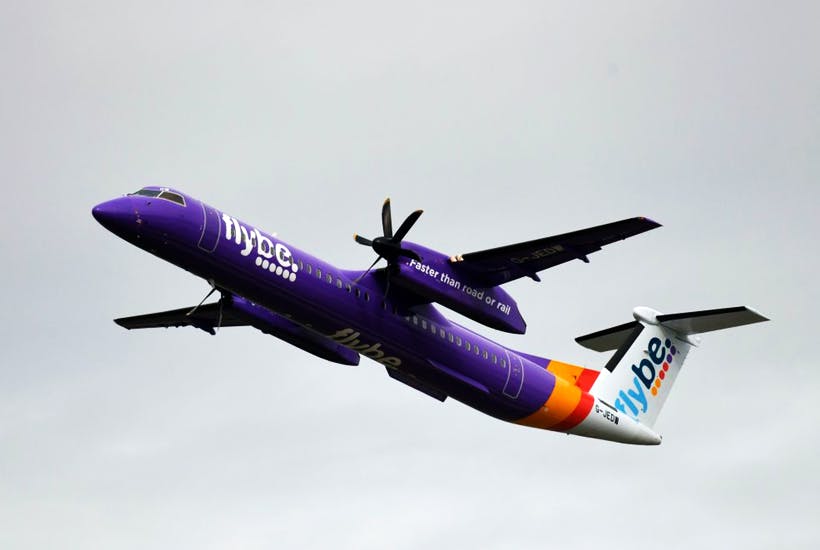During the election, the Tories shifted to the centre ground, competing with Labour on NHS spending, infrastructure investment and politicised increases to the minimum wage. They also pledged to create a new state aid regime to support struggling businesses with public money. It seemed too interventionist – and out of character – to believe. Countering basic economic sense, the self-proclaimed ‘party of business’ proposed measures in favour of cronyism, offering up a far more protectionist vision for Brexit-Britain than had previously been touted.
But as they say, seeing is believing.
This week, the Government dished out its first big serving of corporate welfare to British airline Flybe, which was on the verge of collapse before it was granted permission to defer over £100 million worth of estimated air passenger duty payments to help keep it afloat.
Under heat from rival airlines (Ryan Air’s boss is threatening legal action, while British Airways’ owner has submitted an official complaint to the European Commission about possible abuse of current state aid rules), the Government is trying to justify its special treatment of Flybe. But the best explanation ties back to the campaign promises made to newly-blue constituencies; their pledges to ‘level up’ the rest of the UK’s infrastructure and invest in regional connectivity were core planks of the Tory campaign. While the Prime Minister agreed this week that it’s not the role of Government to save companies “that simply fall into trouble”, it seems to have made exception for a company that is perceived to be important to regional areas of the UK.
But prioritising optics over economic sense does not favour local communities and their economies. To keep economies healthy and dynamic, badly-run companies must be allowed to fail. Flybe’s business model and management has been on a downward slope for years, as its executives made bad investments and failed to update their strategy. While this bailout is likely to prolong the airline’s time spent in critical condition, it deprives smaller regions the opportunity to have a better-run airline replace Flybe (if there really is – as this Government claims – a big market for this kind of travel).
!function(){“use strict”;window.addEventListener(“message”,function(a){if(void 0!==a.data[“datawrapper-height”])for(var e in a.data[“datawrapper-height”]){var t=document.getElementById(“datawrapper-chart-“+e)||document.querySelector(“iframe[src*='”+e+”‘]”);t&&(t.style.height=a.data[“datawrapper-height”][e]+”px”)}})}();
If there is demand for bespoke flights between London and Anglesey, no doubt another, better functioning company will fill the gap that Flybe leaves. But if it turns out no private business thinks this a worthwhile investment, it would reflect the overall trend for passengers to use the roads and railways for domestic travel, rather than the skies. If public money is to be spent on transport, it seems strange that it should be used to prop up failing industry, rather than invested in areas that people are actually using.
The Conservative party has made a real effort (before and during the election) to boost its free market credentials, as the Prime Minister has highlighted time and time again that capitalism and free enterprise are the backbone of thriving economies (not to mention they pay for public services and the welfare state). Having patted themselves on the back for understanding what makes good economy policy, this Tory government has no excuse for misunderstanding the glaring pitfalls and costs of interventionist state aid.
This week’s protectionist move cripples the emergence of new players, favouring a big business like Flybe over the communities the government claims to want to serve. Given last year’s state aid announcement, we should have seen the Flybe bailout coming – but that doesn’t make it a welcome policy now that it’s landed.







Comments